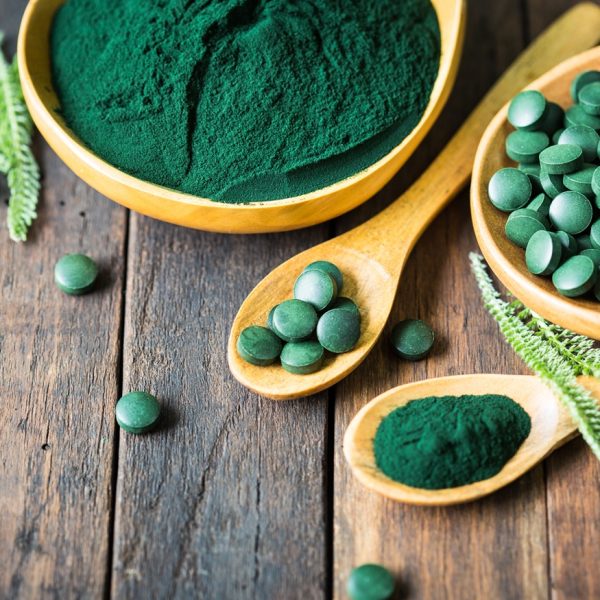What health challenges arise during pregnancy, and how does Ayurveda approach supporting pregnancy with herbs, diet and lifestyle to nurture both mother and baby?
Understanding pregnancy

Ayurveda is a system of holistic medicine that integrates health with lifestyle to restore balance and remove disease by resolving the imbalance that causes it. Ancient cultures, such as Ayurveda, recognised that how one came into the world greatly influenced one’s life. Ayurvedic techniques that support digestion, immunity, vitality, and rejuvenation can help assist women with a healthy conception, pregnancy, delivery, and postpartum (1).
According to Ayurveda, however, the most important thing is the mother’s ongoing happiness, which is seen as the most vital nourishment she can give to her unborn baby. So, the key advice is to relax and enjoy the entire process and allow the body’s natural intelligence to nourish the mother to be and her child.
“The proper maintenance and protection of the pregnant mother is as good as the maintenance or protection of the foetus itself. So, the wise attend upon a pregnant mother with special care to fulfil her favourite and useful needs.” — Charaka Samhita, Sharirasthana 4:15
How does pregnancy work?
“Whichever parts of a pregnant women get afflicted by the imbalance of the mind-body principles; the same parts of the foetus also get afflicted.” — Sushruta Samhita, Sharirasthana 3:16
In Western medical terms, the relationship between mother and baby is called ‘entrainment’, which can be thought of as a kind of tuning — the baby becomes attuned to the mother in the womb. Ayurveda understands deeply that if you are happy and contented, your baby will also be happy and contented. The mother’s feelings and thoughts, as well as your food, influence the baby. The whole gestation period of nine months is hence spent on nourishing the foetus so as to imprint beneficial samskara (psychological conditioning) onto the mind of the newcomer.
Understanding the root of pregnancy

Today doctors know which organs are developing during each month of pregnancy. The Vedic texts, Charaka Samhita and Sushruta Samhita, also give detailed information about the different stages, and it is very close to the modern picture.
Ayurvedic view of gestation
“The foetus is free from thirst and hunger. It is dependent upon the mother for all its activities…the heart of the mother floods the placenta with nourishment through the pulsating vessels. This nutritive fluid promotes strength and vitality of the foetus.” (Charaka Samhita, Sharirasthana 6: 23)
Months 1–3
In this early stage of pregnancy, the body prepares itself for the growing baby. The rasa (lymph), rakta (blood) and mamsa (muscle) tissues are mainly involved in the baby’s development. Most women experience nausea and vomiting and can’t eat a proper diet. A sweet, light and liquid diet is recommended, which is both easy to digest and reduces dehydration. For example, milk is considered very important, being anabolic in nature. It is very important to pacify vata dosha because aggravated vata can cause miscarriage. Once the heart has formed by the end of this trimester, the mother is seen as being ‘two-hearted’, meaning she has to fulfil the desires of both her and her baby. Hence “the mother should be given whatever she wants during this period except those things that are harmful for the foetus”(2).
Months 4–6
The foetus becomes more securely established and starts to grow rapidly. The medas (fat), asthi (bone), mamsa (muscle), majja (nervous) tissues are developing, as well as the brain, heart, eyes. The placenta develops directly nourishing the baby. The muscular tissues of the foetus grow especially rapidly during this period, requiring more protein in the mother’s diet. Meat soups are now advised in the ancient texts. By the end of this trimester most women suffer from swelling of feet and other complications related to water accumulation.
Month 7–9
The foetus grows in all aspects and the woman can feel tired and restless. Most also experience constipation due to the pressure of uterus over the bowels. Pacifying vata dosha is very important and enema therapy is traditionally done with herbs, oil and ghee (clarified butter). In the eighth month, the Charaka Samhita describes how a refined substance known as ojas (the essence of all tissues) transfers from the mother to the baby, and then flows back from the baby to the mother through the placenta. This creates a wavering feeling of joy and sorrow in the mother.. Hence Vedic texts recommend the mother avoid travelling in the eighth month, to avoid undue strain on the baby (travel would have been considerably more uncomfortable in ancient India). The mother should also be protected from shock, fear or sadness and be surrounded by love.
Common symptoms in pregnancy
Back pain
As the ligaments in the body naturally become softer and stretch to prepare for labour, there can be strain on the joints of the lower back and pelvis, causing back pain.

Nausea and vomiting
Often known as morning sickness, this is very common in early pregnancy. There is a chance of developing a severe form of pregnancy sickness called hyperemesis gravidarum.
Constipation
Hormonal changes can cause constipation throughout pregnancy, especially early on.
Swelling
It’s normal to get some swelling in pregnancy, particularly in the legs, ankles, feet and fingers.
Pregnancy cramps
Sudden, sharp pains can be felt, usually the calf muscles or feet. It’s most common at night.
Feeling faint
This is usually due to hormonal changes and is most likely if a woman stands up too quickly from a chair or out of a bath, but it can also happen when lying on one’s back.
Feeling hot
This is due to hormonal changes and an increase in blood supply to the skin. Pregnant women are also likely to sweat more.
Incontinence
This may be temporary, because the pelvic floor muscles (the muscles around the bladder) relax slightly to prepare for the baby’s delivery.
Increased urination
Needing to urinate a lot often starts in early pregnancy and sometimes continues until the baby is born. In later pregnancy, it’s caused by the baby’s head pressing on the bladder.
Skin changes and increased sensitivity
Hormonal changes may cause the skin to darken, either in patches or all over. Skin may also be more sensitive to the sun.
Varicose veins
Varicose veins most commonly affect the legs but can also occur in the vaginal opening (vulva) (3).
Ayurvedic approaches can help common but bothersome pregnancy symptoms as well as potentially prevent more serious pregnancy complications (4).
Herbal solutions
Always consult a qualified herbalist or Ayurvedic practitioner to determine the most suitable and safe herbs, correct dosage and best method to take the herbs in pregnancy.

The key focus of herbal support during pregnancy is to nourish the mother to be and her growing baby. The Vedic text, Sushruta Samhita, describes detailed herbal protocols and nutrition for each month of pregnancy. For example, the kidneys are developing at a certain time and the heart at another time, with different herbs and nutrients needed for each organ as it develops. The Charaka Samhita also describes ten essential herbs for pregnancy in the group of garbha sthapaka (pregnancy stabilising) herbs, which includes brahmi, guduchi, kutki, (though now critically endangered) and amalaki (5).
Ayurvedic herbal preparations in the Jeevaniya group (enlivening, antiageing) are also recommended due to their antioxidants and life-enhancing qualities. An amazing feature of these herbs is their ability to help the body adapt to stress, hence many of them are known as adaptogens. These are given great importance in pregnancy as they revitalise the body, improve mental functioning, promote long life and enhance the development of consciousness. Many of these herbs can be found combined in the traditional Ayurvedic herbal jam Chyawanprash made in a base of amalaki, making it very useful in pregnancy and postpartum.
Other traditionally used herbs include shatavari, ginger, cardamom, pippali, tulsi, gokshura, liquorice (in low doses) and bala. Many of these are predominant in the sweet taste, rich in medicinal values. Herbal ghee (clarified butter) preparations are also widely recommended, such as shatavari ghee and phala (fruit) ghee. Although ashwagandha is traditionally used during pregnancy to support baby and mother and as a uterine tonic, certain quarters of Western herbalism restrict the use of this herb during pregnancy, due to its spasmolytic activity on the uterus (6).
The following traditional home remedies can also help:
- Constipation: One tsp of psyllium husks taken with a glass of warm milk can be effective. A cup of hot milk with 1 teaspoon of ghee is also advised as a milk laxative during pregnancy. However, one of the most effective herbal remedies for constipation, triphala, should not be used in pregnancy (7).
- Swelling: A home remedy is cumin, coriander and fennel tea. Mix equal proportions of these three herbs and use ½ tsp of each herb per cup of hot water. Drink 2–3 times day. For more severe swelling, diuretic herbs such as purnarnava and gokshura can help stimulate the kidneys. Combine in equal proportions and steep 1 tsp. in hot water. Drink 2–3 times a day to act as a mild diuretic (7).
- Morning sickness: Chew cardamom seeds or take ¼ tsp. ground cardamom seeds with 1 tsp of honey. Ginger tea, or ginger and tulsi tea combined is recommended. If you vomit frequently take some form of electrolyte to stay hydrated. A fresh lemon drink made with lemon or lime juice, a pinch of salt and sugar is useful for preventing dehydration (nimbu paani). Coconut water may also help.
Please note: If you are not getting relief with these remedies then consult your doctor, your Ayurvedic practitioner, and midwife. If there are any serious underlying health conditions, or if one is taking pharmaceuticals, it is important to check for interactions. It is best to consult a qualified clinical herbalist or doctor for this.
Holistic solutions

Diet support
The month-by-month diet of a pregnant mother should satisfy four requirements:
- Diet should nourish the mother during pregnancy
- It should help the growth and development of the foetus
- It should ensure a hazard-free and smooth childbirth
- It should help in the secretion of breast milk
“Among the six tastes, sweet taste is ideal for a pregnant mother for various reasons…Sweet taste helps in the building up and strengthening of all bodily tissues. It prevents emaciation and helps prolong life span. It increases stoutness, helps to unite bones, and improves strength and complexion. It is good for the sense organs, skin, hair and throat. Sweet taste gives a feeling of contentment. It is nourishing and gives stability to the body. It helps in the production of breast milk, mitigates burning sensation in the body and cures thirst and fainting. Sweet taste provides oiliness to the body.” (8)
The focus on eating sweet, oily foods to help the pelvic organs, abdomen, back and skin become softer to enable an easy delivery is especially interesting. Some examples of foods which are sweet in taste are, whole unhomogenised milk, ghee, rice, wheat, raisins, dates, banana, jackfruit and sugarcane. The use of ghee is especially helpful throughout pregnancy as it helps lubricate the body and nourish the baby by promoting ojas (the essence of all tissues). Conversely, predominantly pungent (or spicy), astringent and bitter can cause dryness in the body and obstruct the movement of faeces, urine and flatus. This type of food is not seen to contribute to pregnancy.
Light and easily digestible meals are also advised such as soups, casseroles, risotto and other warm cooked foods. The Ayurvedic dish of rice and dhal known as kitchari is ideal as it is nourishing but light to digest. Helpful digestive spices include black pepper, cardamom, cinnamon, coriander, mustard and fennel seeds. However, Ayurveda also agrees a woman should also follow her cravings, as these are nature’s attempt to provide particular nutrients that her baby requires.
Despite common belief, it is not necessary to eat double your normal quantity of food during pregnancy. Overeating weakens the ‘digestive fire’ (agni) reducing absorption and assimilation. It is important to eat according to one’s digestive capacity, which may change daily. If you are experiencing digestive upsets, it can help to have smaller portions at more frequent intervals to reduce the load on your ‘digestive fire’. However, it is key to minimise snacking in between meals. Eating fresh fruit or a juice in between meals is fine with genuine hunger, and the previous meal has been digested. Consuming others foods (e.g: nuts, dried fruits, biscuits) forces the body to run a ‘digestive marathon’ (the system never gets a break) and means fresh food is mixed in the stomach with semi-digested food from the previous meal, resulting in neither being correctly digested nor assimilated.
Pregnancy is a time when many women think about reducing their caffeine content. The NHS guidance is to limit caffeine to 200 milligrams (mg) a day during pregnancy (9). Ginger, tulsi, fennel, chamomile and peppermint herbal teas all make great substitutes for caffeinated drinks.

Ayurveda lifestyle suggestions in pregnancy
“A pregnant woman is to be treated very cautiously, as if one is walking with a pot full of oil in hand without letting a drop fall.” — Charaka Samhita Sharirasthana 8:22
Throughout pregnancy, Ayurveda advises a regular daily routine which avoids excessive exercise, exertion, late nights, fasting, and suppression of any natural urges such as micturition and defecation, as these can be very aggravating. The following are recommended:
Keep happy
Explore stress reduction techniques to soothe the nervous system. Ayurveda is very clear on the need to avoid books and movies with frightening or violent themes. Instead, it advises to spend time with loving friends and relatives and keep your attention on uplifting subjects. Reading positive literature or spiritual teachings, taking time for herself with her baby, meditation and breathing exercises will promote feeling relaxed and grounded.
Rest
A common symptom is fatigue. The first trimester is often very demanding and can also be the time that only you know you are pregnant at work and in your social circle. Ayurveda says pregnancy is one of the few times when daytime naps are highly recommended. Minimising travel during the first trimester is especially advised as travel can be quite tiring in many ways.
Warm oil massage
Traditionally babies and children were massaged weekly in India, and self-massage is a major part of Ayurvedic dinacharya (daily routine). Indeed, the Sanskrit word sneha is translated as both ‘oil’ and ‘love’ as it is believed the effects of a good massage are akin to the feeling of being saturated with love! A light warm oil self-massage is recommended for the first trimester, which not only relaxes the nervous system but can also reduce stretch marks. Soothing essential oils such as lavender, chamomile or rose are all safe in pregnancy. After about the fourth month one can receive a massage from a practitioner in the side positions rather than the prone or supine posture.
Moderate exercise
Exercise helps to improve circulation, reduce stress levels and prevent pregnancy complications. The key word here is moderation though. Up to the fifth month, Ayurveda advises even mild exercise, dancing and swimming should be conducted with great care, as the connection between fetus and mother is still vulnerable and the fetal organs are still delicate. For the same reason, it is best to avoid very exertive sexual intercourse up to the fourth month. In general, the best exercise is a daily brisk walk and attending a regular pregnancy yoga class.
Sleep
Between finding a comfortable sleeping position and common pregnancy symptoms like the frequent need to go to the toilet, heartburn and leg cramps, insomnia is common during pregnancy. A gentle head and/or foot massage before sleeping is advised by Ayurveda to help calm the mind as these areas are rich in marma (vital) points. Some key herbal teas to help unwind are chamomile, valerian and lavender or a cup of milk with ½ tsp of nutmeg can support sleep.
References
- Pisani-Conway C. Ayurveda for Modern Obstetrics. Clinical Obstetrics & Gynecology. 2021;64(3):589-601. doi:https://doi.org/10.1097/grf.0000000000000632.
- Reddy K, Egenes L, Mullins M. For a Blissful Baby. Motilal Banarsidass; 2005.
- NHS. Common health problems in pregnancy. nhs.uk. Published December 3, 2020. https://www.nhs.uk/pregnancy/related-conditions/common-symptoms/common-health-problems/
- Pisani-Conway, C., 2021. Ayurveda for Modern Obstetrics. Clinical Obstetrics and Gynaecology, 64(3), pp.589-601.
- Janardhana Hebbar. Charaka Samhita Sutrasthana / चरक संहिता सूत्रस्थान. Notion Press; 2022:4:18.
- Pole S. Ayurvedic Medicine: The Principles of Traditional Practice. Singing Dragon, Cop; 2013.
- Lad V. The Complete Book of Ayurvedic Home Remedies. Harmony; 1998, p157.
- Girija PL. Diet and regimen during pregnancy. Anc Sci Life. 2008;28(1):40-43.
- NHS. Foods to avoid in pregnancy. nhs.uk. Published December 2, 2020. https://www.nhs.uk/pregnancy/keeping-well/foods-to-avoid/































